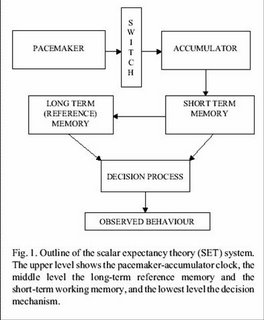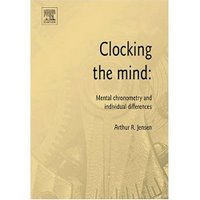Technorati Tags: psychology, educational psychology, neuropsychology, intelligence, IQ, cognition, cognitive, brain, brain fitness, plasticity, brain plasticity, brain training, IQ Brain Clock
powered by performancing firefox
powered by performancing firefox

powered by performancing firefox
 To date I, as the IQ Brain Clock blog dictator, have been posting information that I think is exciting, informative, etc. I'd like to make this blog useful to a wide variety of professionals and scholars who have an interest in mental time keeping and the application of neuroscience research to cognition and learning.
To date I, as the IQ Brain Clock blog dictator, have been posting information that I think is exciting, informative, etc. I'd like to make this blog useful to a wide variety of professionals and scholars who have an interest in mental time keeping and the application of neuroscience research to cognition and learning. Earlier today I made an FYI post (with link to article) dealing with the role of the timing function of the auditory brainstem in speech. This reminded me of an article in a recent special issue of Cognitive Brain Research that reviewed recent neuroscience research (lesion and neuroimaging) that investigated the role of timing in human speech.
Earlier today I made an FYI post (with link to article) dealing with the role of the timing function of the auditory brainstem in speech. This reminded me of an article in a recent special issue of Cognitive Brain Research that reviewed recent neuroscience research (lesion and neuroimaging) that investigated the role of timing in human speech.powered by performancing firefox

 I previously made a couple of tease posts re: the predominant theoretical model of mental interval time-keeping (viz., the pacemaker-accumulator model). It is now time to "buck up" and provide my brief overview. Above is the best figure I've found to date (click here to see the original source article).
I previously made a couple of tease posts re: the predominant theoretical model of mental interval time-keeping (viz., the pacemaker-accumulator model). It is now time to "buck up" and provide my brief overview. Above is the best figure I've found to date (click here to see the original source article).powered by performancing firefox
powered by performancing firefox
 Following up on yesterday's small burst of posts regarding the fact/fiction surrounding the implications of brain-based (i.e., based on neuroscience) for education, I found the following very good overview article. Although not exhaustive or a definitive statement of the state-of-the-art of the neuroscience of education, I think this is a very good introductory overview article. I found the overview of neuroscience methods particulary good. I had not appreciated the differential sensitivity of different brain study methodologies as a function of temporal and spatial sensitivity (see above figure). Readers interested in the application of neuroscience research to the study of severe reading (dyslexia) and math (dyscalculia) disabilities will find the later half of the article interesting, although I believe these disability-related reviews are more illustrative than definitive (does not integrate all relevant neuroscience research findings regarding these forms of learning disabilites)
Following up on yesterday's small burst of posts regarding the fact/fiction surrounding the implications of brain-based (i.e., based on neuroscience) for education, I found the following very good overview article. Although not exhaustive or a definitive statement of the state-of-the-art of the neuroscience of education, I think this is a very good introductory overview article. I found the overview of neuroscience methods particulary good. I had not appreciated the differential sensitivity of different brain study methodologies as a function of temporal and spatial sensitivity (see above figure). Readers interested in the application of neuroscience research to the study of severe reading (dyslexia) and math (dyscalculia) disabilities will find the later half of the article interesting, although I believe these disability-related reviews are more illustrative than definitive (does not integrate all relevant neuroscience research findings regarding these forms of learning disabilites)powered by performancing firefox
 Thanks to the Download Squad for the FYI regarding a free on-line Metronome.
Thanks to the Download Squad for the FYI regarding a free on-line Metronome.powered by performancing firefox

powered by performancing firefox

powered by performancing firefox
 I just ran across a 2004 study that examined prospective (reproducing a 30 second time interval) and retrospective (how long did a task take?) time judgements in children with reading disorders and ADHD (RD and ADHD groups).
I just ran across a 2004 study that examined prospective (reproducing a 30 second time interval) and retrospective (how long did a task take?) time judgements in children with reading disorders and ADHD (RD and ADHD groups).powered by performancing firefox
 This is a preview post.
This is a preview post. Can a person's internal master mental clock be improved? Can the temporal resolution, as reflected by a higher "clock rate," be improved vis-a-vis some form of intervention?
Can a person's internal master mental clock be improved? Can the temporal resolution, as reflected by a higher "clock rate," be improved vis-a-vis some form of intervention?powered by performancing firefox
powered by performancing firefox


powered by performancing firefox
powered by performancing firefox